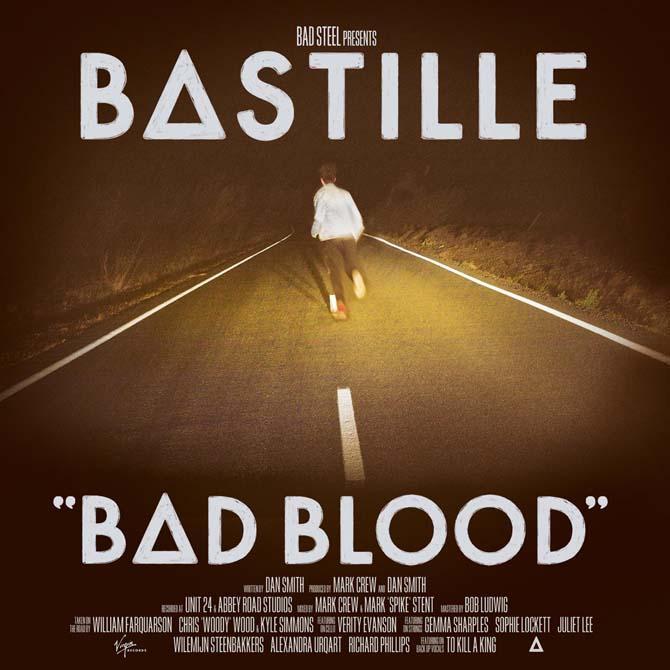Maybe it’s a little too early to start calling the best albums of 2013, but I’m doing it anyway: Bastille has dropped the best album of 2013 so far.
London’s latest indie rock favorite Bastille doesn’t do anything inside of the box. It’s already proven that with its mixtapes, a ragtag collection of covers and mash-ups that include unexpected gems like an apocalyptic reworking of Haddaway’s “What is Love” and the heaviest, most jam-worthy Seal cover to ever threaten to blow out your speakers. Nothing drives home frontman Dan Smith’s mastery of production like “No Angels,” a marriage of TLC’s “No Scrubs” and The xx’s “Angels.”
That innovation, that bizarre knack for arrangement and composition, is what sets Bastille apart from every other indie band with big ambitions and triangles on their promotional art. It’s what makes its debut LP “Bad Blood” technically gorgeous and complex, not to mention infectiously listenable.
“Bad Blood” layers different sides of Bastille’s sound on every track — tribal drums and synth beats, electronic melodies and sweeping string orchestration, haunting choruses and quiet piano — and still somehow pulls together into a cohesive album. Maybe what makes it all work is the way Smith’s voice drives the highs and lows, an almost Frank Ocean-esque ability to convey a flood of emotion and soul with a tone as pure and earnest as it is desolate.
But it’s not just the sound that makes the album so devastating and so good. From start to finish, “Bad Blood” is an achingly honest album. Smith strips life and loss down into the most basic, human terms.
Within the first three seconds of listening, opening track “Pompeii” pulls you in with its booming vocals, but Smith’s howling chorus of “but if you close your eyes, does it almost feel like nothing’s changed at all?” keeps you there. Smith’s speciality seems to be heart-wrenching lyrics that you don’t realize you needed to hear so badly until you’re screaming along to them on the fifth listen — and yes, you’ll want to put this album on repeat.
From “Pompeii,” the album moves through grief (“Things We Lost in the Fire”), regret (“Bad Blood”), existential angst (“Weight of Living, Pt. II”), fear of the future (“Oblivion”), hope (“Flaws”) and homesickness (“Get Home”) with a mix of melancholy and sincerity that’s all too familiar to any 20-something. The iTunes extended cut ends with the the painfully lovely “Laughter Lines,” which hopes in between violins, “I’ll see you in the future when we’re older, when we are full of stories to be told.”
Bastille’s “Bad Blood” is at once hopeless and hopeful. It’s an album for rolling down your windows and taking the long way home, turning the volume all the way up and pounding your fists on the steering wheel. It’s heartbreaking in its brutal honesty but comforting in its relatability, because the truth may hurt but at least you’re not alone with it.
If nothing else, “Bad Blood” is overwhelming proof Bastille has big things ahead of it, so if you’re going to jump on one train before it leaves the station, make it this one.










